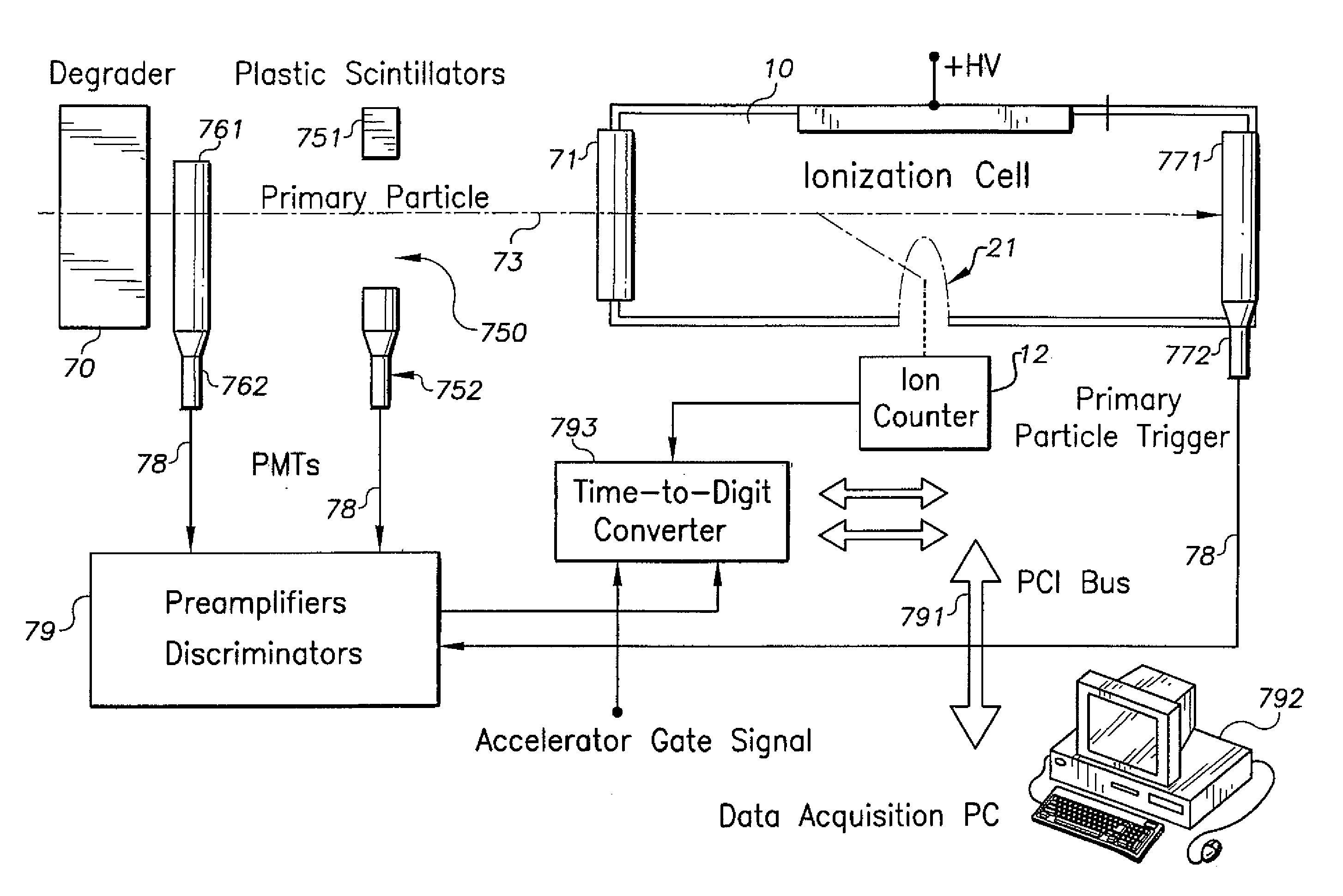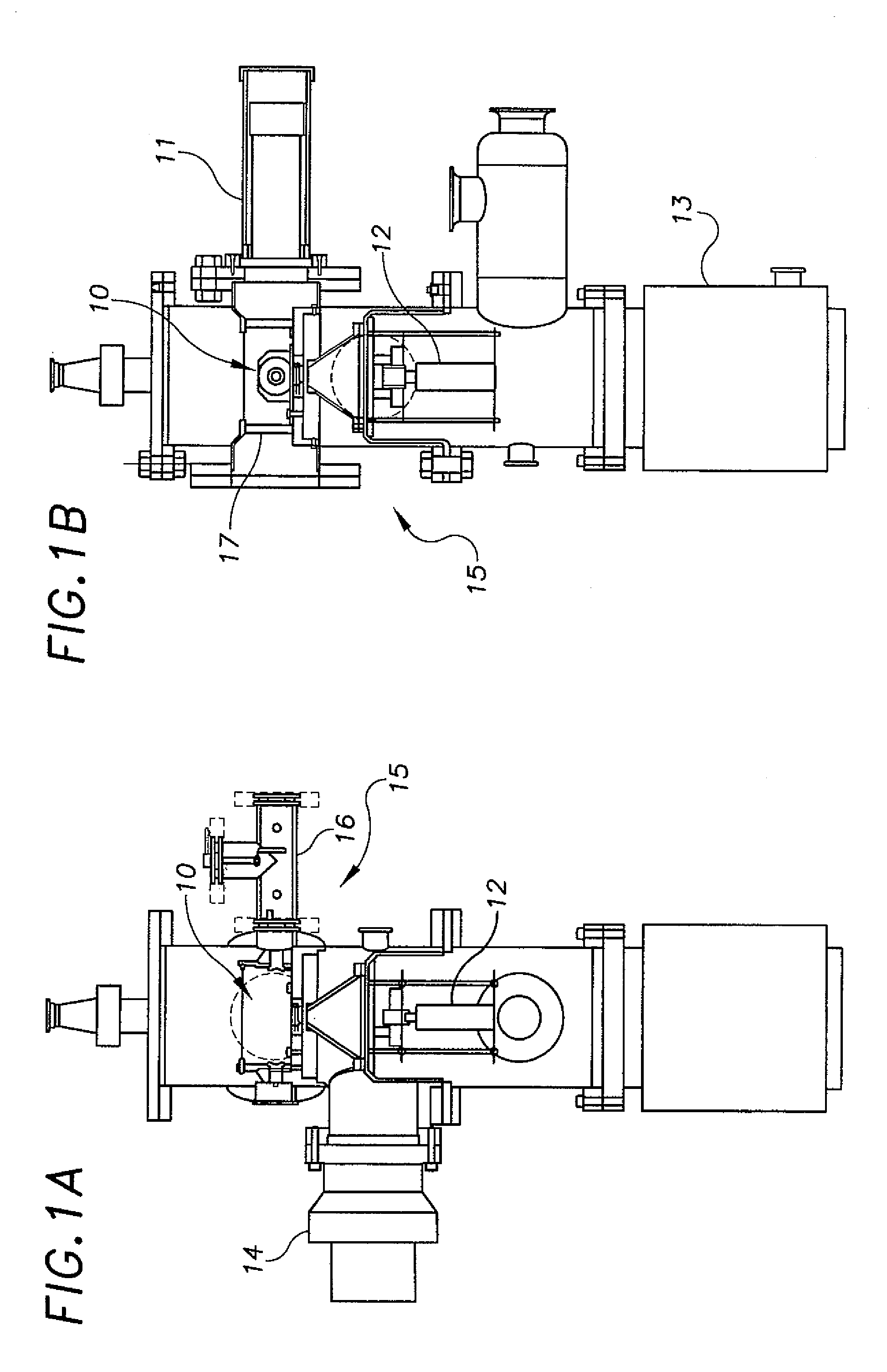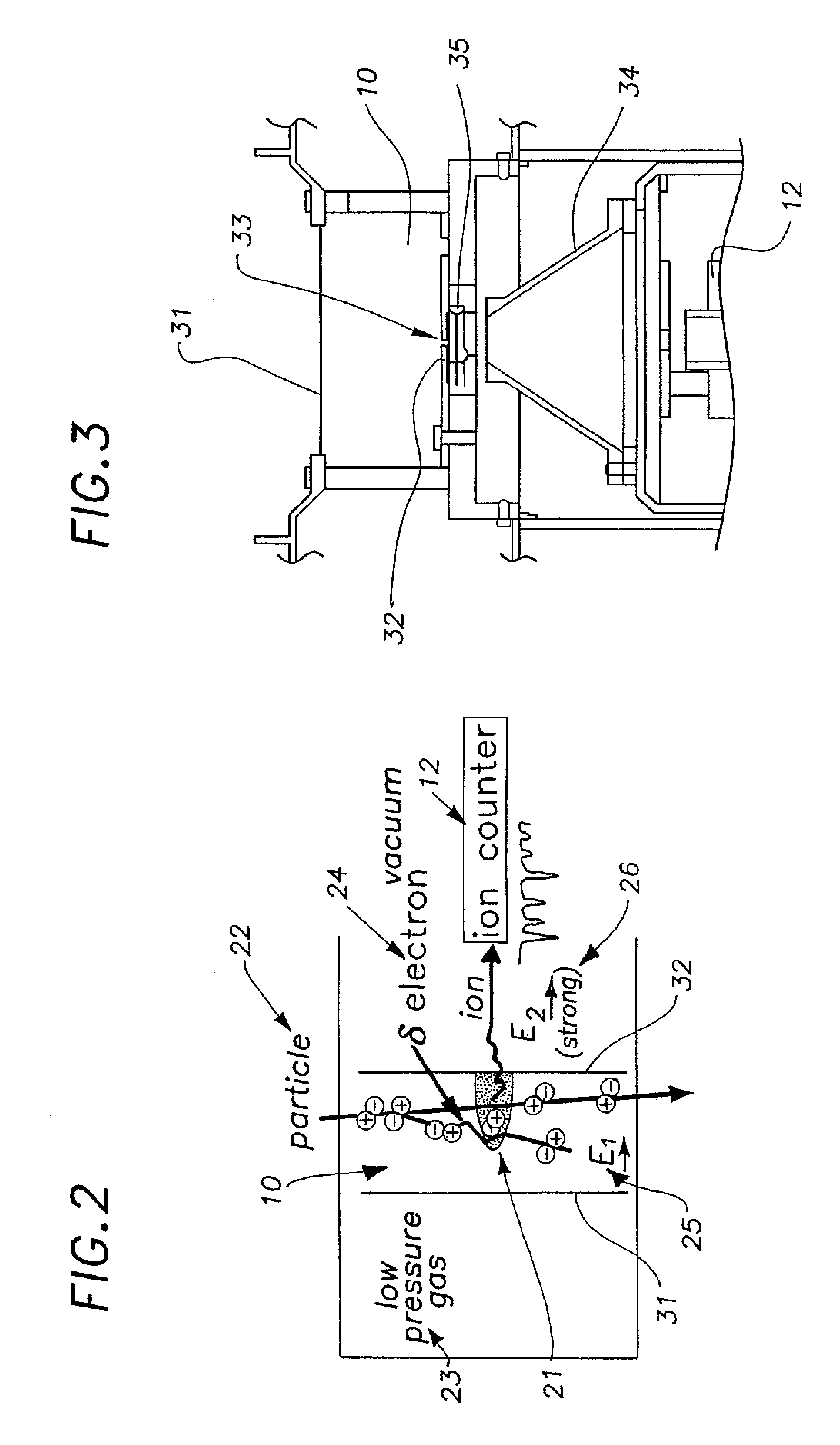Nanodosimeter based on single ion detection
a single ion, nanodosimeter technology, applied in the field of radioobiological, can solve the problems of variable base alternation or loss, difficult repair, cell mutation or cell death,
- Summary
- Abstract
- Description
- Claims
- Application Information
AI Technical Summary
Benefits of technology
Problems solved by technology
Method used
Image
Examples
Embodiment Construction
[0034]The present invention will be better understood with respect to FIGS. 1–11 that accompany this application.
[0035]FIGS. 1A and 1B show detailed drawings of a nanodosimeter 15 that is capable of being used with the present invention, comprising an ionization chamber 10 holding a low-pressure gas, into which radiation is injected either from a built-in a particle source 16 which is in communication with the ionization chamber, or from any external radiation source after passing through an entrance window 17, a detector 11 and an ion counter 12 for counting ionized particles. A differential pumping system comprising two pumps 14 and 15 is also provided to maintain a relatively low pressure (e.g., a high vacuum) in the chamber holding the ion counter, while maintaining a higher pressure within the ionization chamber. Any suitable radiation source emitting ionized charged particles with sufficient energy to penetrate window 17 can be used, as will be evident to those skilled in the ...
PUM
| Property | Measurement | Unit |
|---|---|---|
| diameter | aaaaa | aaaaa |
| diameter | aaaaa | aaaaa |
| diameter | aaaaa | aaaaa |
Abstract
Description
Claims
Application Information
 Login to View More
Login to View More - R&D
- Intellectual Property
- Life Sciences
- Materials
- Tech Scout
- Unparalleled Data Quality
- Higher Quality Content
- 60% Fewer Hallucinations
Browse by: Latest US Patents, China's latest patents, Technical Efficacy Thesaurus, Application Domain, Technology Topic, Popular Technical Reports.
© 2025 PatSnap. All rights reserved.Legal|Privacy policy|Modern Slavery Act Transparency Statement|Sitemap|About US| Contact US: help@patsnap.com



